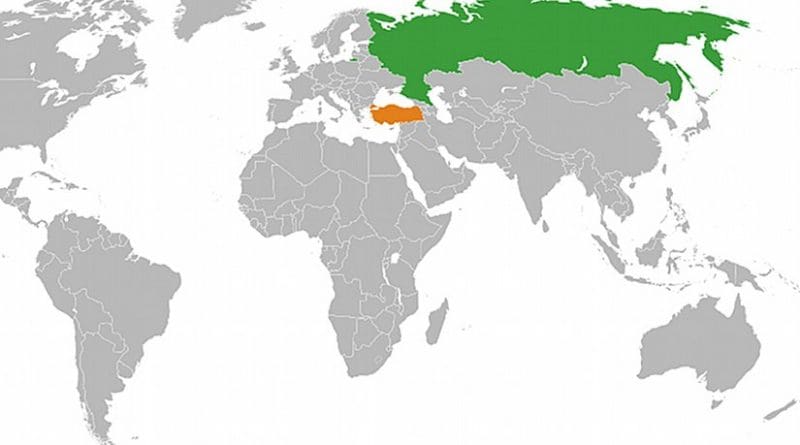Rising Tensions: NATO-Turkey Radars Detect Russian Jet Airspace Violation – OpEd
It appears the Kremlin is deliberately provoking Turkey and NATO. Turkey’s Prime Minister Ahmet Davutoglu said on Sunday that both Turkish and NATO radars detected a Russian jet violating Turkish airspace, refuting Russian claims that the violation was “pure propaganda.”
A Russian SU-34 jet reportedly flew into Turkish airspace, despite radar warnings, prompting Ankara to summon the Russian ambassador and has once more stoked tensions between the two countries involved in Syria’s war. Russia denies that there had been any incursion, with Russian Defense Ministry spokesman Major-General Igor Konashenkov refuting that any Russian plane had entered Turkish airspace, and called the Turkish allegation “pure propaganda”.
“There has not been a single violation of Turkish airspace by Russia air force planes in Syria,” Igor Konashenkov told Russian news agencies. He added that Turkish radar installations were not capable of identifying a particular aircraft or its type or nationality, and that no verbal warning had been issued.
In response, Davutoglu told a press conference in Riyadh that Russia “cannot cover up its violation of our airspace. It’s not possible to hide such an incident if it did happen, or to make up a violation if it didn’t happen.”
NATO Secretary-General Jens Stoltenberg called on Russia to “act responsibly” and “take all necessary measures” to ensure the bloc’s airspace was not violated again. “A Russian combat aircraft violated Turkish airspace yesterday, despite repeated warnings by the Turkish authorities. Previous incidents have shown how dangerous such behavior is,” Stoltenberg said in a statement.
Turkey has warned Moscow of consequences after saying that a Russian warplane ignored several radar warnings not to violate Turkish airspace, in the latest spat between the two countries.
In a similar incident in November, Turkey shot down a Russian warplane flying a sortie over Syria that it said had violated its airspace, triggering a diplomatic rupture in which Russia imposed economic sanctions.
Relations between the two countries are at their lowest point in decades, prompted by the November 24 downing of the Russian jet by Turkish forces. Following that downing, Moscow imposed a series of economic sanctions against Ankara after the incident, sparking the biggest crisis between the two countries since the Cold War.
Turkish President Recep Tayyip Erdogan said that the latest incident was a sign that Russia wanted issues between the two countries to deteriorate. “We regard this infringement which came despite all our warnings in Russian and in English as an effort by Russia to escalate the crisis in the region,” said Erdogan. “If Russia continues the violations of Turkey’s sovereign rights, it will be forced to endure the consequences,” he added, saying he wanted to meet his Russian counterpart Vladimir Putin after the incident.
Erdogan said he told the foreign ministry to convey my desire to meet Putin personally. “There has been no answer on this yet.”
Meanwhile, there is no respite in the war in Syria. US Secretary of State John Kerry appealed on Sunday to both sides to continue the Syrian peace talks in Geneva, despite an attack by Islamic State bombers that killed more than 60 people near the country’s holiest Shi’ite shrine. Kerry said the conflict could easily engulf the Middle East if no negotiated settlement was achieved. He also called for immediate steps to increase food aid and other humanitarian assistance to Syrians.
“In the end there is no military solution to the conflict,” Kerry said in a televised statement.
One thing is clear: the reason for Moscow’s repeated airspace violation is not clear.
Despite the conflict, Davutoglu has made it clear that Turkey has absolutely no intention of escalating tension with Russia, but we remain sensitive about protecting our airspace.

